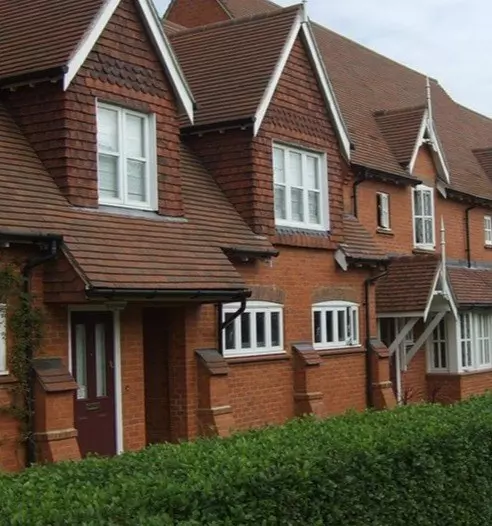Who Typically Gets The House In A Divorce?
Are you looking to find out who typically gets the house in a divorce? Find out more about how to value a property during a divorce. Kent Property Witness offer RICS expert witness surveyor services for Tonbridge and Kent. Our RICS expert witnesses property surveyor works with clients throughout Tonbridge and Kent to provide property valuations following a divorce.
What happens to the house when a couple gets divorced?
Whether you rent your home or own it, it doesn't matter whose title deeds or name the house is in; both parties still have the rights to stay in the household.
If you are unsure whether or not to leave the marital home you and your partner have lived in, you can ask your partner to go.
It may be a significantly suitable decision if it would financially benefit or suit both of you. We recommend seeking legal advice from housing services, solicitors and lawyers.
Doing so will ensure you get all the necessary information and make any necessary enquiry to make an informed decision before taking any action. Do not leave your home because your partner tells you to; this way, you cannot ensure any financial benefits or entitlements.
When a couple purchases a home collectively in the UK, they are legally and equally entitled to stay together or separately.
Your financial agreement, during a divorce or dissolution, is what decides which person stays and keeps the home and whether or not they should buy the other partners share.

It determines whether you should sell your house and whether the proceeds should be split between the two of you. Finally, your agreements will decide who gets primary care over your kids and if they should stay until the children leave home.
What legal rights do I have to my home during a divorce?
It is common for one spouse to move out of the family household during a separation or divorce. Doing so reduces any tension or further conflict and can protect the children from harm or upset. Such a thing does not mean that the leaving partner or spouse forfeits any rights to the site's occupation or property or any right to their ownership.
Both civil partners and spouses have their legal rights to their house in the UK until some financial settlement is agreed upon. The judges in court may need to impose some financial remedies and financial equity for more permanent arrangements.
The 'Home Rights' refer to your own rights to the family home or property, even if you aren't named on the mortgage or don't legally own it. You cannot force either one spouse/civil partner to leave the marital household as it is a family law unless there is a court order for safety reasons such as domestic violence or frequent conflict.
Marital home rights are often valuable for the short term, and they are predominantly used before things are settled and finalised by the court order.
However, these home rights cannot decipher any long-term decisions, such as who gets to own the current property and live in it permanently or whether you should go on to sell the property altogether and search for new sites each.
There are numerous marital home rights and regulations concerning who owned and owns the property and how they choose to own it.
Who is responsible for the mortgage when we are divorcing?
However, the pair of you isn't liable for half each, and this means that one person misses or doesn't pay their share; the other is held just as responsible for the whole mortgage, which is a situation you want to avoid. All that matters in that situation is that the payments are made.
Your name on the mortgage doesn't necessarily mean you are the legal owner of the house or property, especially if it is in one sole name of either spouse or partner. It purely means that you are most responsible for making any number of payments on the mortgage.

It all depends solely on whoever's name is on the mortgage. If both of your names are on the mortgage, the name for this is Joint and Several Liability. Such a thing requires both of you to pay for the mortgage; the pair of you will be liable and responsible.
However, if only one of you is named explicitly on the mortgage, that partner or spouse is responsible for all mortgage payments.
If it gets to the point when this named partner doesn't make payments, for example, the other spouse may pay in their place if they move out. If they are joint legal owners or if you have any marital home rights, this is an option of payment.
The mortgage lender must accept all of these payments as though they are directly from the named owner.
Am I entitled to half the house in a divorce?
When the court grants a divorce or dissolution, they split your significant assets, individually and especially those that belong to both of you. It allows you to come to a final decision of who owns what.
The way the judges and solicitors in court decipher how to split these assets depends on the final financial agreements you and your significant other come to. If no genuine agreement is made, the court decides on the fairest splits to hopefully please the pair of you.
Your family household is regarded as a unique asset to each family court; each case is given special attention and treatment as each case is so different. Treating each with specific purpose and detail ensures both parties get a deal they both agree on. It allows both partners to remain with roofs over their heads no matter what once all the cases and divorce are over.
Even if one of you has sole ownership over the property, the courts often prioritise other factors as this is regarded with little relevance. In the final stages of the settlement, there are numerous decisions that you as a couple and the court should make around the splitting of assets and family home finances.
Here are some of the decisions:
Whether you should sell your family home and begin dividing the proceeds into specific percentages and equal agreed amounts.
If the house and its rights get transferred from one partner to the other.
Whether the house is kept in joint names, in this case, one person, often the primary carer of the kids, will remain, and you will sell the property at a later date. Perhaps it may get sold after death, remarriage or once the youngest child finishes their education if each party can afford to do so.
Will I have to sell my house if I divorce?
Each divorce or dissolution case varies, and because they are all so personal, they are all handled very differently whether you need to sell your home if your divorce is settled on the case. Numerous couples may finalise an agreement over the matter; they may decide that one partner will stay in the house, whilst one partner in a couple may wish to buy the property off of them or buy another property. Sometimes if the couple struggles to decide or agree, the court will decide for them in a way they deem most fair.
Couples can come to various agreements in terms of their marital home during the process of their divorce. However, the light through the tunnel is that if you choose to purchase the house overall, you don't necessarily have to pay your partner for half of the general value of your household.
It would be best if you came to some reasonable agreement; this depends on numerous other aspects of your joint finances, such as all your savings and investments. Both parties and partners must have written contract proof of all decisions made.
the court must factor in numerous aspects:
When deciding which partner will get the home, the court must factor in numerous aspects:
The overall welfare of the children, which parent is best suited to looking after the children. Is it safe for both parties to have them interchangeably?
Consider the income, the earning capacity and any additional financial income or outside resources that they may be expecting or earning in the future.
They also must consider the financial liabilities, obligations and specific duties of each of the partners involved.
The judges in court should consider the standard of living for each partner before the marriage or civil partnership breakdown. Alongside considering the age of each partner whilst they were married or during their civil partnership.
Each partner's contribution is vital to consider, and the possible contribution they will make to the home and their family welfare in the aftermath of the divorce.
The court must analyse the property's overall value between each partner and the benefit it could have on each party or have previously before the decision to part.
If the circumstances refuse to allow for an immediate sale of the marital home, you and your partner may have to agree on the postponing of selling the property.
Postponing the sale can be rather beneficial for all, especially where children are involved. Retaining the family home and keeping it temporarily can achieve some stability for the young children whilst their family is separating.
Often parties can agree on postponing the property's sale until the youngest child turns 18 and finishes their education or moves on to further education, perhaps away from home. Financially this seems like the most innovative option, depending on the situation, of course. After doing so, the house may be sold and the proceeds divided.
Are you looking to find out who typically gets the house in a divorce? Contact us at Kent Property Witness and give us a call about any information or advice you may need about the best options.
If you are looking for property valuation following a divorce in Tonbridge and Kent get in contact today. Our RICS expert witnesses property surveyor can offer the best services.

